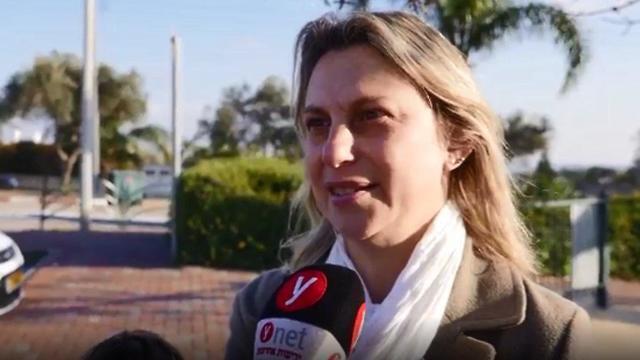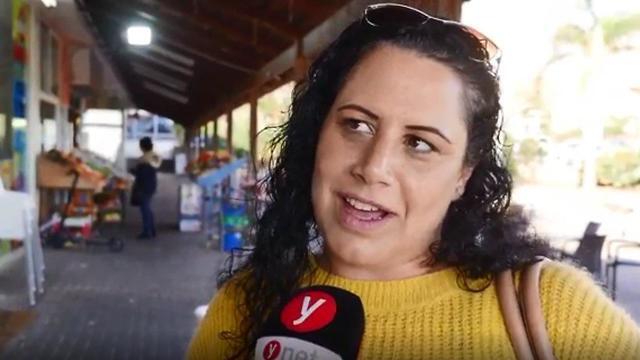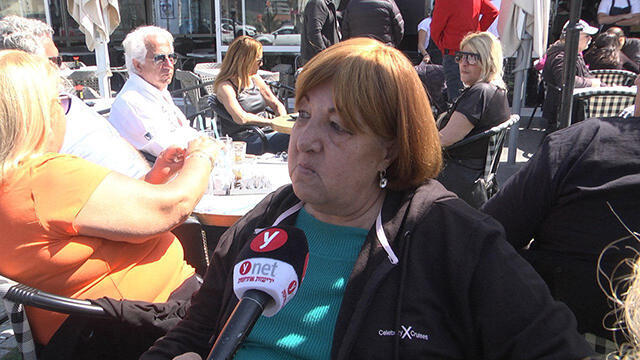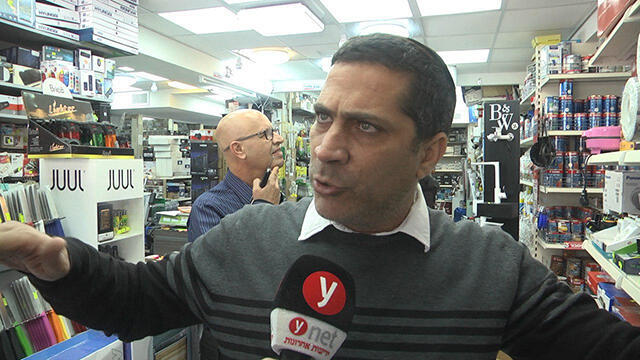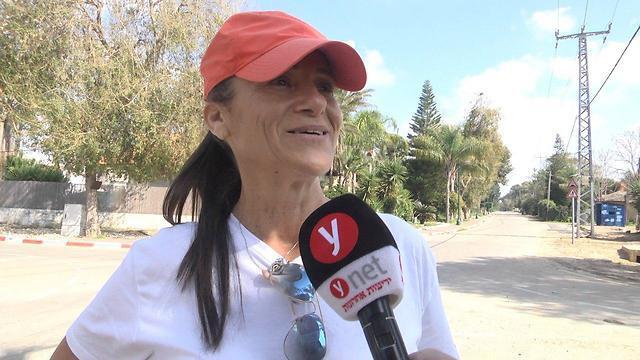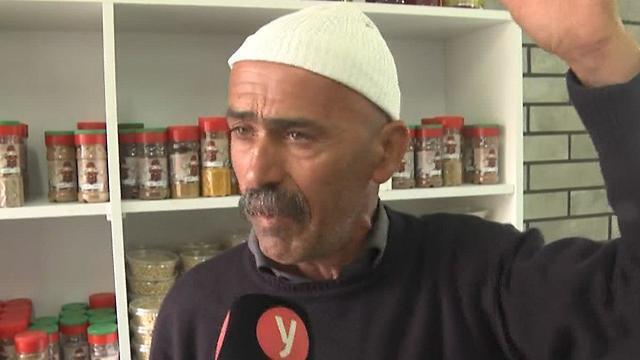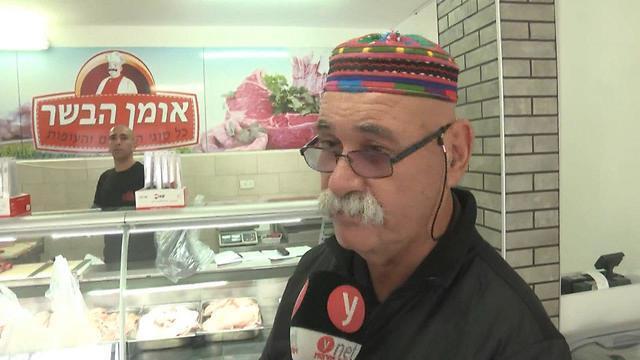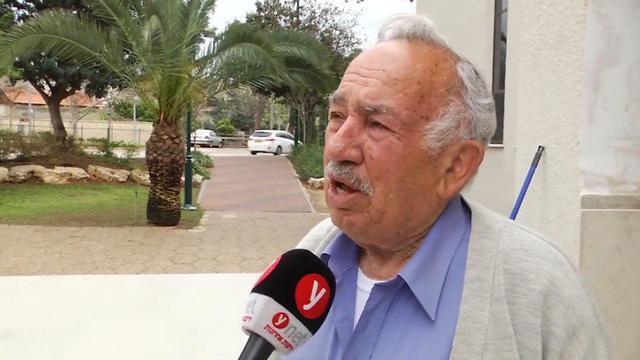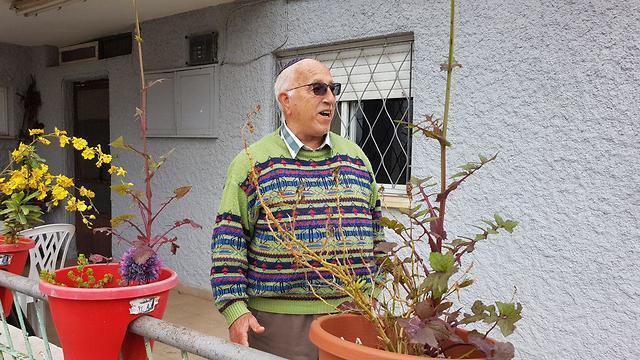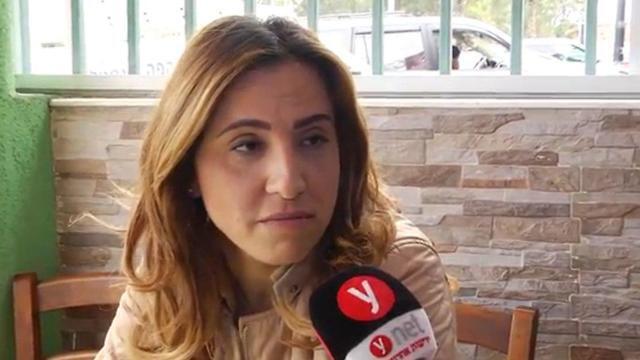Getting your Trinity Audio player ready...
During the months-long election campaign for the 21st Knesset, Ynet went on a tour of the country, trying to get a sense of what the voters think and for which party do they intend to vote. From north to south - these are some of the voices of the Israeli voter.
and Twitter
Undecided settlers
Alfei Menashe is a settlement in the West Bank that falls within the borders of the security fence. Despite its location, about 40% of the residents voted for left-wing and central parties in previous elections. One reasons for this apparent discrepancy is that many residents of Alfei Menashe did not choose to live here because of political ideology, but rather because of the standard of living.
One such person is Sarit Rosenthal, a mother of four who previously voted for the left-wing Meretz Party and is still unsure of how she will cast her ballot on Tuesday. "I am really undecided between the Labor party and Gantz's party," she says. "Just because I live over the Green Line does not mean I am here for ideological reasons, but rather for economic reasons and the hope of good quality of life."
Fellow resident Shira Sharon also says she is living at the settlement for the standard of living.
"Most of the people wanted improved housing, and are not living here for ideological reasons," she says. "As someone whose parents who moved her here at the age of 12, we came for the quality of life."
Politically, Shira places herself on the right, toward the center - and she does not intend to vote for Netanyahu.
Likudville
In the southern city of Ashdod, there seems to be almost uniform support for the Likud party and its leader Benjamin Netanyahu. Everyone on the promenade, a local cafe, and even in the ultra-Orthodox neighborhood of the city appears to be a Netanyahu fan.
.
In the cafe, Evelyn Itzik is holding a political debate with close family members.
"They are hunting him," she says of Netanyahu. "His opponents are trying to frame him. Only Bibi! "
Likud member Max Sheetrit says that the judicial system is duplicitious and gunning for the prime minister, who is facing a raft of corruption allegations. "Bribery and corruption are things that every politician does, I don't why they are fixated on Netanyahu, everyone takes bribes," he says.
Political sectarianism is so strong here that a local cafe owner declines to be photographed for the article, apparently fearing that his comments would harm his business.
"All of the people that you have seen here are of Mizrahi origin," he says. "They feel sidelined and it doesn't matter how much money they have, they will always feel deprived. (Blue and White leaders) Gantz and Lapid are Ashkenazis who in their eyes represent (Labor forerunner) Mapai, which historically hurt them. It doesn't matter what happens, they and their children will never vote for the left-wing."
However, the city is home to a large group of immigrants from the former Soviet Union, for whom Yisrael Beiteinu - headed by Moldovan-born Avigdor Lieberman - is the obvious choice.
"Who will look out for me? Only Lieberman," said one elderly resident.
The battle over observing Shabbat that once stirred up tensions in the city appears to be over, with issue of religion and state less of a consideration in the national elections. In the ultra-Orthodox neighborhoods they say they will vote "according to what the rabbis decide."
In one of these neighborhoods, which looks like a replica of Mea Shearim in Jerusalem, dozens of yeshiva students are marching in the streets.
In the shop next to the city's largest synagogue, is Oren Simchi, a great supporter of Netanyahu, who will be voting for the ultra-Orthodox Shas party.
"The king deserves cigars, the king deserves champagne, he deserves chocolates, he deserves pistachio ice cream," Simchi says, referring to Netanyahu and his alleged indulgence and corruption.
Rival sons
Some 10km southeast of Ashdod lies Kfar Ahim, the moshav that raised two key figures in the current election - Blue and White leader Benny Gantz and Likud stalwart Yisrael Katz, the transportation minister who still resides here.
Determined to keep the peace, the residents of Kfar Ahim decline to publicly declare their political leanings, despite the presence of posters for both parties.
In front of the cameras, the locals compliment both men and even provide some interesting tidbits about them.
"Katz was a good boy," says a local resident of the Likud no. 3. "Gantz was a lot younger than us, they left the moshav after eighth grade."
Dalia Gobi, who grew up with Gantz, has some memories of the family: "Gantz first and foremost came from a family whose parents every Israeli home. He himself is an honest man, a great man."
Druze disappointment
In the Druze town of Isfiya, on the slopes of Mount Carmel, the most common expression is one of disappointment over the Nation-State Law that passed in 2017. The law determines Israel as the nation state of the Jewish people alone.
The residents are angry at the Likud, which leads the government, but also with Kulanu chairman Moshe Kahlon, who supported the Nation-State Law.
Walid Satar, an Isfiya resident who served in the IDF, is personally furious at the prime minister. "Bibi stuck a knife in our backs," he says. "We support the State of Israel and Bibi compared us to the Arabs of Umm al-Fahm who carry out terror attacks."
In a local butcher's shop is Mufak Mansour, who also served in the army, in a combat unit. "I previously voted for Moshe Kahlon," Mansour says. "But after the Nation-State Law passed with the help of Kulanu, I am voting for Gantz."
At a cafe in the village, several Likud members tried to convince the residents to vote for the party.
"When Bibi wins, you will hear that the Nation-State Law will be canceled," they claim.
Divided town
Kfar Haroeh, between Hadera and Netanya, is one of the first religious settlements in the country, where the plethora of right-wing parties has caused some tensions.
Opinions here are still divided: There are those who will vote for Naftali Bennett no matter what, while some feel betrayed because they are still loyal to the National Religious Party (the main partner in Jewish Home, which Bennett left to form his New Right party).
Others defend Netanyahu and some consider voting for far-right Moshe Feiglin - but not because of his pledge to legalize cannabis.
On the porch of his home, Michael Peled looks out over rolling green fields and considers the generational differences in voting in the national-religious community.
"The older residents will primarily vote Jewish Home," Peled says. "The youngsters have many views of their own, some are for Gantz and some for Bibi. There are also liberal people here in the village."
Among many residents, anger is mounting against Naftali Bennett, who they claim has hurt the NRP. One of the veteran residents of the moshav, Amiram Dermer, does not hide his contempt.
"Bennett quit and left us and that's not nice," he says. "Maybe he wants to be prime minister, but a real leader does not abscond the moment before the elections."
A surprise in Tira
In the Arab town of Tira, in cental Israel, the politics are far from straightforward. Surveys show that more than 40% of the country's Arabs population have decided not to vote in the elections or are still undecided.
Many of the residents of the city who intend to vote said they would vote for the Arab parties, but others surprisingly said they would vote for the right-wing parties, first and foremost the Likud.
Mansour Naim, the owner of the popular hummus joint opposite city hall, has still not decided how he is casting his vote, but he is not happy with the current state of affairs.
"We are 20 percent of the citizens of State of Israel and the prime minister ignores us. These aren't democratic elections, this is incitement. Bibi is increasing the hate and creating a gulf between Jewish and Arab citizens."
Hadil Talawi, a local lawyer, is also furious at the extremism and slander of the right-wing leaders against the Arab citizens of Israel.
"Personally, the Likud election propaganda is very annoying," she says. "I don't want Bibi to win the elections because I want peace, and Bibi will not make peace."
But Talawi also had issues with the Arab lawmakers, whom she said sacrifice social issues in their campaigns for the Palestinians.
"The Palestinian issue is important to us, but it is important to me that our representatives act more on social issues," she says. "The most important thing is to invest in the education of the future generation and to eliminate the violence in the Arab sector because we want to raise the new generation, our children, in a society without violence and institutional corruption. We all want peace."
But Hanan Zebarga, a nurse, has a somewhat surprising political position. "I'm thinking of voting for Bibi," she says. "The Arab parties are all talk, while the Likud helped us solve problems in the municipality, and Bibi will bring us security."
11 View gallery


Tira resident Hanan Zebarga: Likud helped us more than the Arab parties (Photo:Yaron Sharon)
(צילום: ירון שרון)
Zebarga is not the only one in Tira who sees Likud as a safe pair of hands. Quite a few residents have anecdotes about the help they received from right-wing politicians in solving problems of daily life, especially in navigating the municipal regulations, such as the issue of building permits and preventing house demolitions.
To them, voting Likud and Netanyahu is simply returning the favor.


